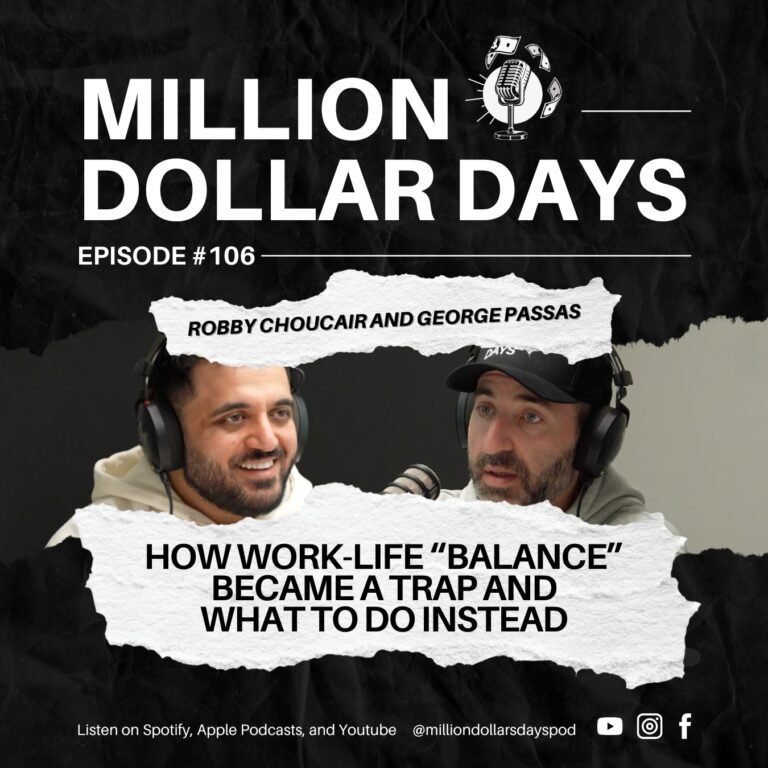The conversation opens with a surprise: a hardcover book giveaway tied to a simple listener challenge. But that hook quickly leads to a bigger theme—why “work-life balance” often fails in the real world, and why smarter prioritization wins. The hosts push back on the five-day workweek and the 50-50 ideal, arguing instead for seasonality and tradeoffs. They explore how to define what matters most right now—kids, health, revenue, learning—and let those values drive daily choices. Their premise is simple and sharp: you are one person, living one life; your energy must align with what you say you want.
From there, they examine how quality beats quantity in family time. Being home can be empty if everyone is glued to screens; intentional rituals like school pickup or bedtime reading carry more weight than clocked hours. They discuss explicit agreements with partners—who provides what, when seasons get intense, and how to avoid silent resentments. A candid story about pausing a date to send a critical email shows how clarity and mutual respect can improve both the relationship and the work outcome. The takeaway: radical honesty about priorities prevents conflict and creates a better version of you for the people you love.
Technology becomes the next lever. Used well, it buys back time; used poorly, it steals presence. Practical tactics follow: turn off badges and non-essential notifications; set Do Not Disturb windows; leave the phone on a kitchen charger at night; ditch smartwatches if they tether your nervous system to pings. The hosts show how systems like site diaries and email rules document progress and cut rework. They celebrate small automations that file receipts and route emails, saving hours monthly. Tech should be a silent assistant, not a siren. When you choose when to engage, your attention deepens and your stress drops.
Mental health, fitness, and discipline round out the framework. The link is direct: training improves mood, cognition, and resilience. Even short workouts or a 20-minute dog walk change how the rest of the day feels. They favor structure that forces follow-through: pre-booked PT sessions, accountability partners, and calendar blocks. Flexibility is a privilege once fundamentals are scheduled. They challenge listeners to reject excuses with blunt clarity—if you want a different outcome, pick one habit and change it for real. Excellence in business means little if your health fails; elite is doing both.
A reflective segment digs into energy management and growth. One host admits he once over-indexed on work and under-delivered at home, not out of malice but inexperience. He reframed his life through mentorships, courses, public speaking, and better communication. That growth compounded: better leadership at work, clearer connection at home. He resists rigid doctrines, preferring seasonal priorities and present-moment decisions. Regret fades when today aligns with your true aims. The close returns to execution: define your season, publish your boundaries, automate your drudge work, and protect your focus. Then do more of what matters and less of what doesn’t.
